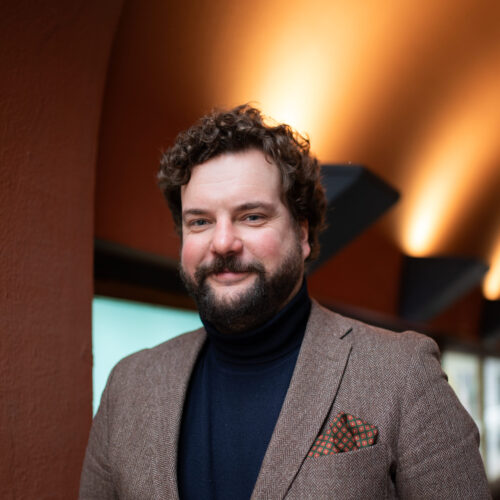

Alexander
Lång
Helsinki
"The world's most well functioning capital - for real! "
My name is Alexander Lång, a native of Helsinki and Kulosaari. In my daily work, I serve as a special advisor to the Minister for European Affairs and Ownership Steering.
I was born and raised in Kulosaari and completed my entire schooling in Helsinki. For my studies, I moved to Turku and then, via Mariehamn, to Brussels.
I lived in Brussels for the past seven years before moving back home last autumn. Over the years, I have lived in several small and medium-sized cities, which has given me valuable perspective.
Coming back home to Helsinki was wonderful, and that is why I am running in the municipal elections—to work for the great things we have here in our city.
My Helsinki is safe, well-planned, and functional—not just in speeches and strategies. I want to work to ensure that we have a beautiful, safe, and efficient city, across the entire city.
Important political topics
Sustainable and attractive planning
We must cherish the beautiful Helsinki we have while also allowing for growth and development. This means that urban planning must improve—we do not need excessive infill construction in old neighborhoods, nor do we need new districts filled with generic box-like buildings that are too close to each other.
We must also preserve Helsinki’s connection to the sea and carefully expand along the coastline. The sea and the coast are an essential part of Helsinki’s identity.
Our urban planning should not destroy Helsinki’s unique charm, and our traffic planning should enable private cars, public transport, and light traffic to coexist. One should not exclude the other.
Economy & Business
Helsinki is not only the country’s capital and largest city; it is also the hub of the economy and business sector. This means that we must ensure that Helsinki does not become just a peninsula where everyone wants to live. In my vision of Helsinki, there are offices, industrial areas, small and medium-sized enterprises, tourism, and other business activities. Not everything should have to be placed outside the city limits or in the surrounding municipalities.
A strong and diverse business structure also benefits the municipal economy. Helsinki needs a stable tax base to finance schools, healthcare, public transport, and other public services. By retaining and developing businesses in the city, tax revenues increase, which in turn enables investments in welfare and infrastructure. It is about creating a long-term balance between growth and quality of life—a city where people want to both live and work.
In my Helsinki, there are opportunities for all types of businesses, and city bureaucracy should not be an obstacle to them.
The best schools
We have had the world’s best school system, but PISA surveys show that something is not as it should be. Measures and investments will be required, and Helsinki should be at the forefront. We must be the best in the country.
Schools, preschools, and childcare services should be close to Helsinki residents, where we live. We must protect and develop our schools and ensure that we have a comprehensive school network - also when it comes to international schools.
Candidate's answers in election machine
1 / 11
Early childhood education should be free for everyone.
If it\'s obligatory for all, it should be tuition free. If not, a fee is acceptable.
2 / 11
Schools should prioritize traditional textbooks over digital learning materials.
I don’t think one should exclude the other in today’s digitalized world. However, I believe we may have taken a few steps too far when it comes to digital learning materials.
3 / 11
One of the municipality’s most important tasks is to invest in sports facilities and opportunities for exercise and recreation.
Sports facilities, exercise, and recreation opportunities are important. The public sector should provide them as long as they do not compete with private businesses or associations. For example, outdoor recreation areas are something that should be publicly provided.
4 / 11
It is important to provide all residents with equal opportunities for cultural activities.
Culture should be as accessible as possible for all Helsinki residents. For example, we have a very well-functioning city library.
5 / 11
The municipality should introduce or improve opportunities for residents to influence how municipal funds are used through participatory budgeting.
Participatory budgeting certainly functions as one of the tools in the toolbox for deliberative democracy. However, the major decisions should be made in the city council.
6 / 11
The municipality should invest in public transportation.
Public transport should be easily accessible and competitively priced (in relation to other modes of transport). Unfortunately, this is not realized in today’s HSL system.
7 / 11
It should be possible to be a resident in more than one municipality, for example, through digital municipal citizenship.
If the cost distribution of the incurred expenses for public services and the collection of municipal tax are resolved, absolutely.
8 / 11
The municipality should better facilitate the expansion of renewable energy, such as solar and wind power.
The municipality should not be an obstacle to renewable energy. It brings growth, vitality, and prosperity, as well as, of course, tax revenues.
9 / 11
The municipality should mix more housing types in planning than is currently the case.
The current system works well, but of course, there is always room for fine-tuning.
10 / 11
The municipality should introduce anonymous recruitment.
If it makes it easier to recruit the best, absolutely.
11 / 11
If you could give a superpower to your future political leader, what would it be?
Corruption in all its forms has no place in our society.


